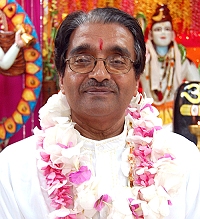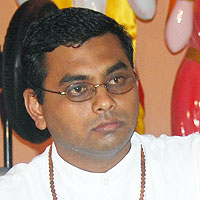From a satsang with Paramacharya of SWAHA, H.H. Pundit Hardeo Persad
In the profound epics of Hindu philosophy, the divine essence unfurls in myriad forms, each embodying the essence of creation, preservation and dissolution. Central to this cosmic symphony is the notion of shakti, the primordial energy, the Divine Mother, from whom flows the eternal power that orchestrates the cosmic dance. She is the genesis of mother worship, an exaltation that extends from the terrestrial to the celestial realms.
The axiom “Maatri Devo Bhavah” encapsulates the ethos of reverence bestowed upon the earthly mother, echoing the omnipotent grace of the Divine Mother. Within the sanctum of Hindu tradition, the mother stands as the paragon of virtue, a figure enshrined in scripture as one of the five mothers worthy of veneration. Across hymns and verses, her love, sacrifice, forbearance and selflessness weave tales of adoration, elevating her to the pedestal of divine reverence.
Throughout epochs immortalised in scripture, the luminous example of exemplary mothers illuminates the sanctity of maternal love, elevating women, and mothers in particular, to a sanctified station among myriad relationships. In Shri Raam’s noble life, from infancy to kingship, the primal role of the mother emerges as a cornerstone of virtue and success. As the first Guru, the first God, her blessings pave the path to fulfilment, her presence a bastion of shelter from harm, and her absence a void.
Within the sacred syllables of “Maa” lies a universe of meaning, where the consonant “Ma” evokes the tender emotions of the heart, while the vowel “aa” resonates with the power of bliss. Thus, the mother becomes the repository of joy, love and victory. Like the divine trinity of Durga, Lakshmi and Saraswati, she embodies the essence of will, knowledge and action, nurturing her offspring with a bounty of nourishment, guidance and wisdom.
From the womb to the world, the mother’s influence transcends mortal realms, imprinting upon her child’s consciousness even before birth. The saga of Prahalad, steeped in devotion from the womb, and the divine intervention for child Upamanyu at the behest of his mother, testify to her transcendent role in shaping destinies. In the sacred scriptures, her role as educator is heralded as essential, her influence a thousandfold more than that of a father or teacher.
As we herald the arrival of Mother’s Day, let us contemplate the immeasurable gratitude owed to the mothers who grace our lives. For in the sanctum of her love, there is solace, in the sanctuary of her wisdom, there is guidance, and in the radiance of her grace, there is redemption. Thus, let us honour the earthly mother, the epitome of divine grace, whose love is infinite and whose blessings reveal the path to eternity.



